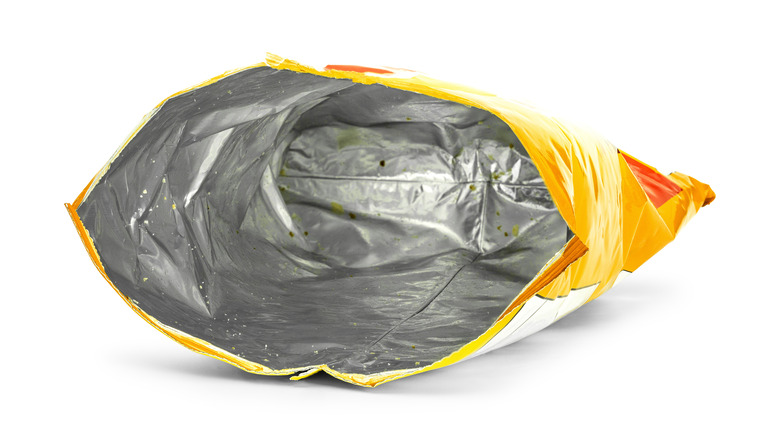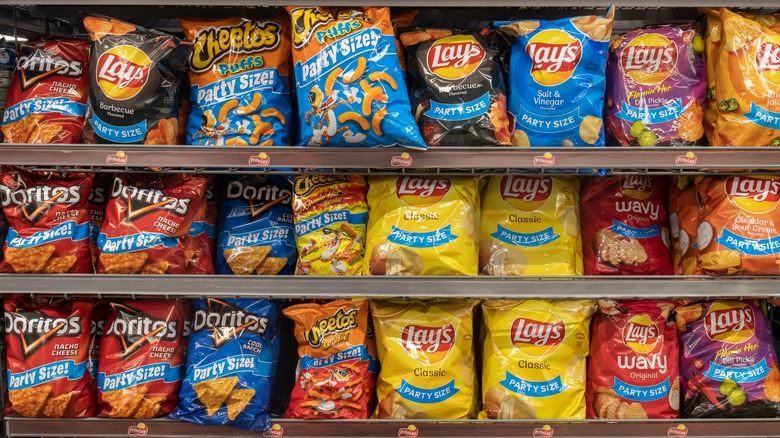Why PepsiCo Might Limit How Many Chips Are In A Bag
That inflation is driving up prices on a wide range of products is hardly news at this point. Forbes points out that inflation rate is at 8.6% representing a 40-year high. With the dollar buying less-and-less, consumers are shelling out more of them for rent, electricity, air fare, and groceries, specifically produce and meat.
Food and beverage companies are feeling the pinch in their pocketbooks as well, says Yahoo. Transportation, packaging, raw materials, and labor costs have all shot up, and, predictably, a large number of these firms are passing those costs on to consumers. Among those who have raised their prices or announced their intention to do so include Hormel and General Mills.
PepsiCo, maker of the eponymous cola and the Frito-Lays line of snacks, has also raised prices, reports Food Dive. However, the company is also considering a novel approach that could keep costs down, but not without a different sort of change.
Less instead of more
PepsiCo CEO Ramon Laguarta, in his Q2 2022 prepared remarks released on the company's website, noted that they plan to focus greater attention on "holistic cost management initiatives." Across the company, this relates to a range of programs, but, when it comes to Frito-Lay North America, this could mean that when you reach for a bag of chips, they'll be less there.
Explaining that they are exploring "mix and assortment solutions," Laguarta's remarks further outline that variety packs may see smaller "pack sizes" in the future. This plan was echoed by company CFO Hugh Johnson on the CNBC program "Squawk Box." He further elaborated that this would not be a permanent change, but rather on occasion and would be done in lieu of raising prices.
While that news may sting fans of Frito-Lay — which also produces brands like Ruffles, Sun Chips, and Smartfood – PepsiCo has made another relatively recent announcement that should make consumers –- and our planet –- happy. The pep+ (PepsiCo Positive) initiative is a "strategic end-to-end transformation" that includes a host of 2030 goals, from utilizing regenerative agricultural practices to net-zero emission and net water positivity to reducing the amount of plastic bottles it uses in packaging.

